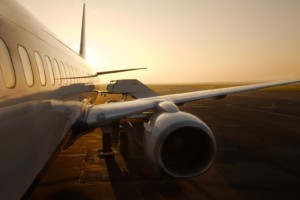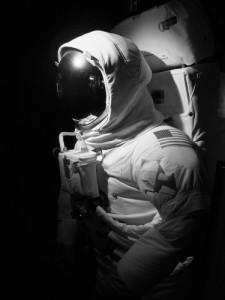
Aerospace encompasses the various technological aspects of aircraft and spacecraft. Therefore, in the world of academia, aerospace engineering is the study of everything that goes into making and operating aircraft and spacecraft–the designing, construction, operation, and maintenance. If you are particularly interested in the workings of planes, jets, helicopters, satellites, space shuttles…then you should consider pursuing a career in aerospace engineering. With a degree in aerospace engineering, you can get up close and personal to these flying machines with or without leaving the ground.
Areas of Aerospace
What can you do with an aerospace engineering degree? As an aerospace engineer, you can work with everything from airplanes to parachutes, from satellites to hang gliders. There are many different paths aerospace engineer majors can travel. People who have earned degrees in aerospace engineering have often found jobs in areas listed here.
Computer programming
Automobile designing
Aeronautical engineering
Astronautical engineering
Wind-energy conversion
How to Get an Aerospace Engineering Degree
There are many high school classes available that can help you prepare for earning a degree in aerospace engineering. If you want to pursue a degree in aerospace engineering you should be sure to take various science courses, such as physics and chemistry, and math courses like algebra and basic calculus. Consult your guidance counselor for information on other courses your high school may offer to help you best prepare for further education. When looking at colleges and universities, it is important to find schools with programs specifically accredited in the area of study that you plan to pursue.
The College of Engineering at Boston University offers undergraduate students a Bachelor of Science in Mechanical Engineering with a concentration in Aerospace Engineering. Students specializing in aerospace engineering at Boston University build their problem solving and critical thinking skills in the classroom and through research and internship opportunities. They can choose from many math and science courses that are constructed with the intention to help each and every student succeed in the world of engineering. Faculty are dedicated to the success of their students, helping to improve future generations by teaching students how to become experts in their desired fields. Students go on to work for government agencies, helping them improve aircraft and satellites. Some even go on to assist engineers improve race car dynamics for recreational and entertainment purposes.
Wichita State University offers aerospace engineering programs for both undergraduate and graduate students. Students can earn a bachelors degree, masters degree, and even a doctoral degree by completing course requirements related to science, mathematics, and more in the aerospace engineering programs. WSU offers more than just lecture courses; the university provides hands-on learning with highly reputable labs and outstanding research opportunities that allow students to grab hold of experience in the field of aerospace engineering without even leaving the classroom. The school also has a great Cooperative Education Program in which students can gain experience off campus, as well, with the chance to work at NASA locations while still earning their degrees.
The University of Michigan’s aerospace programs are also worth considering. In addition to the basic necessary math and science courses, undergraduate students can take courses that cover topics such as aerodynamics, mechanics of space flight, aircraft and spacecraft propulsion, space system designing, and more. Students can also go on to earn a Master of Science in Space Engineering to further develop the skills and talents necessary for working with and designing equipment used for space exploration. This masters program combines structural engineering, aerospace engineering, and more to give students an even more detailed education in the world of engineering.
If you are interested in earning an aerospace degree but attending on-campus classes does not fit in your schedule, consider researching online degree programs for aerospace engineering.
Careers in Aerospace Engineering
While earning your aerospace engineering degree, it is also important to consider the many career paths that are available to students upon graduating. Choosing a career path while you are still in the process of earning your degree will help you better shape your studies to gain experience through an internship or study abroad program that relates to your specific interest and in turn creates an impressive resume for potential employers.
Entry Level Careers in Aerospace Engineering
A bachelors degree in aerospace engineering holds a significant amount of power that will help you qualify for various positions, some of which are listed and described here.
Flight Dispatcher
A flight dispatcher works together with the captain of an aircraft in order to ensure the safety of the craft and its occupants. Unlike captains, flight dispatchers do not work directly on the aircraft; they often work in offices within airports to help pilots guide their ways to specific destinations. With a certification from the Federal Aviation Administration (FAA) and a bachelors degree in aerospace engineering and specialization in a field related to the aviation industry (i.e., meteorology), a flight dispatcher assists with weather research to predict potential departure and arrival times of flights, as well. Flight dispatchers have excellent research and communication skills.
An entry level flight dispatcher can earn around $21,000 annually, depending on education and experience levels in addition to whether the airline is public or private. With experience, a flight dispatcher may earn a salary of over $80,000 annually.
Aerospace Technician
An aerospace technician works with aerospace engineers, contributing to everything from the construction to the upkeep of aircraft and spacecraft. Aerospace technicians also have the exciting job of testing their creations in order to confirm vehicles are safe and easy to use before they even leave the site. An aerospace technician possesses at least a bachelors degree in aerospace engineering with sufficient background knowledge in multiple maths and sciences in addition to good communication and problem solving skills.
Aerospace technicians can earn a salary of over $50,000 annually, based on education and experience levels.
Advanced Careers in Aerospace Engineering
Upon gaining a few years of experience after earning your bachelors degree and/or masters degree in aerospace engineering, you will qualify for many more positions with more rewarding salaries. Some examples can be found below.
Aerospace Ground Equipment Technician
An aerospace ground equipment (AGE) technician performs maintenance services on equipment that remains on the ground but is used to enhance aircraft accuracy and the safety of its occupants. Aerospace ground equipment technicians can work on equipment ranging from generators to air compressors to bomb lifts (if they work for the U.S. Air Force) and more. AGE technicians can have at least a bachelors degree in engineering and a few years experience and training within the field. It is also often suggested that AGE technicians be certified by the FAA. They are able to pay strict attention to details and possess advanced problem solving skills with knowledge in pneumatics, hydraulics, electronics and more in order to perform their duties accurately in a timely fashion.
Aerospace ground equipment technicians can earn around $43,000 annually, based on education and experience levels in addition to whether they work for public or private companies.
Mission Specialist Astronaut

Mission specialist astronauts are typically in charge of the happenings of a space mission while on the shuttle in space. They work together with the pilots to ensure that space missions are carried out according to plan. They are often the individuals on the shuttle crew who perform space walks during missions, as well. For this reason, mission specialists need to know how to work all machinery and equipment aboard space vehicles in order to keep in touch with engineers on Earth assisting with missions. Like astronaut pilots, mission specialist astronauts also go through extensive training in preparation for a lifetime of astronautical adventures. They need to pass the NASA space physical in order to demonstrate their tolerance of specific physically straining and stressful situations that may or may not arise when they are assigned to space missions. Requirements to become a mission specialist astronaut include but are not limited to possessing a bachelors degree in aerospace engineering or related field and at least three years experience or equivalent graduate education (masters degree and/or doctoral degree).
Mission specialist astronauts can earn around $54,000 annually, depending on education and experience levels in addition to proper training.
Companies that Hire People with Aerospace Engineering Degrees
After earning your aerospace engineering degree, you should begin looking for companies that hire people with degrees in aerospace engineering. If you are lucky, you may land a permanent position for the company where you interned if you took on an internship opportunity towards the end of your college career. However, this is not always the case. There are many companies that are looking to hire people with aerospace engineering degrees for many types of jobs, and below is just a brief list of examples.
Kay and Associates – locations around the U.S.; hires positions for aircraft mechanics, data analysts, warehouse specialists, power plants mechanics, etc.
Honeywell – locations around the U.S.; hires positions for quality engineers, materials master coordinators, etc.
Air National Guard – hires positions for aerospace propulsion specialists, mechanics, etc.
The Aerospace Corporation – headquarters in El Segundo, CA; hires positions for aerospace test engineers, applied spectroscopy specialists, bearings engineers, electrical engineers, etc.
Aerospace engineering is a fascinating area of study that can lead to many rewarding careers for you personally and society as a whole. If you have a passion for the workings of flying forms of transportation, then consider further researching information on aerospace engineering degree programs and career options to find out if a job in the world of aerospace engineering is right for you.


